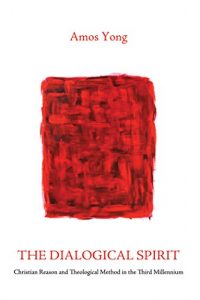Contemporary proposals for Christian theology from postliberalism to Radical Orthodoxy and beyond have espoused their own methodological paradigms. Those who have ventured into this domain of theological method, however, have usually had to stake their claims vis-à-vis trends in what may be called the contemporary "post-al" age, whether of the postmodern, post-Christendom, post-Enlightenment, post-Western, or postcolonial varieties. This volume is unique among offerings in this arena in suggesting a way forward that engages on each of these fronts, and does so from a particularistic Christian perspective without giving up on Christian theology's traditional claims to universality. This is accomplished through the articulation of a distinctive dialogical methodology informed by both pentecostalism and evangelicalism, one rooted in the Christian salvation-history narrative of incarnation and Pentecost that is yet open to the world in its many and various cultural, ethnic, religious, and disciplinary discourses. Amos Yong here engages with twelve different interlocutors representing different ecumenical, religious, and disciplinary perspectives. The Dialogical Spirit thus not only proffers a model for Christian theological method suitable for the twenty-first-century global context but also exemplifies this methodological approach through its interactions across the contemporary scholarly, academic, and theological landscape.
"The Dialogical Spirit brings together some of the main theological interlocutors and strands of theological reflection that have shaped the thought of one of the most prolific and creative pentecostal theologians of our time. It offers a compelling argument for a pneumatological and dialogical theological method as particularly suited to address contemporary theological problems while remaining faithful to the core of Christian revelation."
--Catherine Cornille, editor of Criteria of Discernment in Interreligious Dialogue
"If there is one theologian whose scholarship marks, mirrors, and advances the evolutionary highpoints of pentecostal theology it is Amos Yong. This inspiring book on theological method demonstrates that the twists, turns, and swerves in his thoughts are the temporal tea leaves that not only interpret the past and present of pentecostal theology, but also decipher the future of charismatic-renewalist theology as the representative Christian theology in the twenty-first century."
--Nimi Wariboko, author of The Pentecostal Principle
Amos Yong is Professor of Theology & Mission and Director of the Center for Missiological Research at Fuller Seminary, Pasadena, California He is the author and editor of more than two dozen books, including Spirit-Word-Community: Theological Hermeneutics in Trinitarian Perspective (2002) and Spirit of Love: A Trinitarian Theology of Grace (2012). This book is a companion to his The Missiological Spirit: Christian Mission Theology for the Third Millennium Global Context (Cascade Books, 2014).
"The Dialogical Spirit brings together some of the main theological interlocutors and strands of theological reflection that have shaped the thought of one of the most prolific and creative pentecostal theologians of our time. It offers a compelling argument for a pneumatological and dialogical theological method as particularly suited to address contemporary theological problems while remaining faithful to the core of Christian revelation."
--Catherine Cornille, editor of Criteria of Discernment in Interreligious Dialogue
"If there is one theologian whose scholarship marks, mirrors, and advances the evolutionary highpoints of pentecostal theology it is Amos Yong. This inspiring book on theological method demonstrates that the twists, turns, and swerves in his thoughts are the temporal tea leaves that not only interpret the past and present of pentecostal theology, but also decipher the future of charismatic-renewalist theology as the representative Christian theology in the twenty-first century."
--Nimi Wariboko, author of The Pentecostal Principle
Amos Yong is Professor of Theology & Mission and Director of the Center for Missiological Research at Fuller Seminary, Pasadena, California He is the author and editor of more than two dozen books, including Spirit-Word-Community: Theological Hermeneutics in Trinitarian Perspective (2002) and Spirit of Love: A Trinitarian Theology of Grace (2012). This book is a companion to his The Missiological Spirit: Christian Mission Theology for the Third Millennium Global Context (Cascade Books, 2014).






